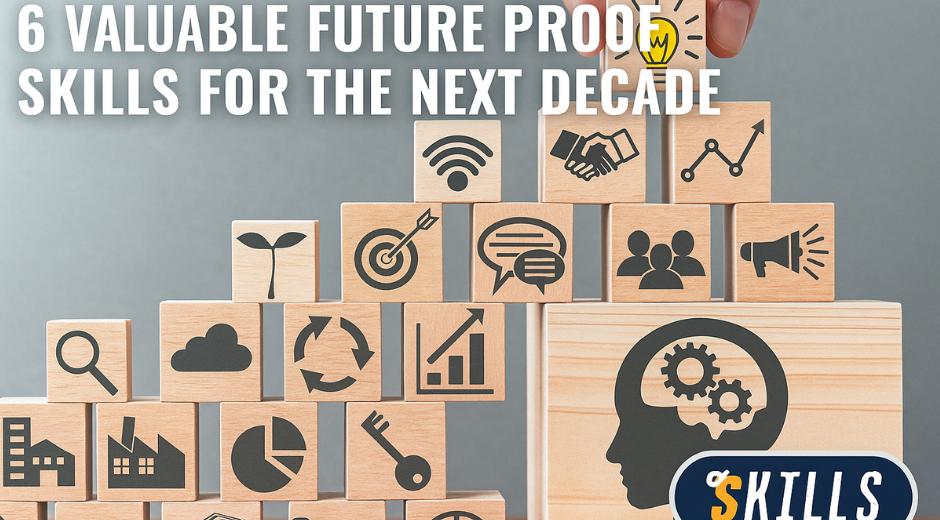4 Easy Steps to Build Confidence in Your Skills
Confidence is one of the most important qualities you can develop in your personal and professional life. It’s the fuel that drives you to take risks, speak up, pursue opportunities, and grow. But confidence doesn’t just magically appear—it’s built over time through practice, self-awareness, and persistence. Becoming confident in your skills requires effort, but the rewards are worth it.
When it comes to your skills, whether they are technical, creative, or interpersonal, confidence plays a huge role in how effectively you use them. You might already have the ability, but without being confident, it’s easy to doubt yourself and hold back. The good news is that anyone can learn how to become confident and strengthen that quality just like any other skill.
Here are four practical steps you can take to become more confident in your skills and start unlocking your full potential.
1. Recognize and Celebrate Your Progress
One of the biggest reasons people struggle to feel confident is because they focus too much on what they can’t do instead of appreciating how far they’ve come. When you’re always comparing yourself to others or aiming for perfection, it’s easy to forget the progress you’ve already made.
Take time to look back at your journey. Think about where you were a year ago compared to where you are now. What skills have you improved? What challenges have you overcome? Even small wins count. Maybe you learned how to give a presentation without feeling nervous, or perhaps you mastered a tool at work that used to confuse you. Each of these steps makes you more confident.
By acknowledging these moments, you remind yourself that growth is happening. Keeping a journal of your accomplishments, no matter how small, can also help. Over time, reviewing these notes will give you a clear picture of your progress and help you feel more confident whenever self-doubt tries to creep in.
2. Practice, Practice, Practice
Confidence comes from repetition. The more often you use your skills, the more comfortable you become with them, and the more confident you feel. Think about when you first learned to ride a bike. At first, you were shaky and unsure, but after enough practice, you became confident and steady. The same principle applies to professional or personal skills.
If you want to feel confident in public speaking, volunteer to lead meetings or give presentations. If you want to be confident in your writing, commit to writing a little bit every day. The key is consistency. Even short, daily practice sessions build familiarity and reduce fear, which makes you more confident over time.
It’s also helpful to push yourself slightly outside your comfort zone. Challenge yourself with tasks that feel just a little intimidating. Over time, those challenges will feel easier, and your confidence will naturally grow, making you even more confident in your abilities.
3. Seek Constructive Feedback and Learn from It
Many people fear feedback because they associate it with criticism. But when you reframe it as a tool for growth, feedback becomes one of the fastest ways to grow confident in your skills. Constructive feedback helps you identify areas for improvement while also reinforcing what you’re doing well.
Seek out mentors, colleagues, or friends who can give you honest and supportive feedback. When someone points out a mistake, don’t take it personally—see it as a chance to adjust and improve. On the flip side, when they highlight your strengths, take it as proof that your efforts are paying off. Both experiences make you more confident and better prepared.
Confidence grows when you know both your strengths and your weaknesses. Feedback gives you the clarity to keep improving while also validating the progress you’ve already made, making you steadily more confident with each step.
4. Develop a Growth Mindset
At its core, confidence is about believing in your ability to grow. If you think your skills are fixed and can’t be improved, every setback feels like a failure. But when you adopt a growth mindset—the belief that skills can be developed through effort—you see challenges differently, and you become more confident in your ability to handle them.
Instead of saying, “I’m just not good at this,” you begin to say, “I can get better with practice.” That small shift changes everything. You no longer avoid difficult situations out of fear; instead, you see them as opportunities to learn and grow more confident.
To cultivate a growth mindset, remind yourself that mistakes are part of the process. Every expert was once a beginner. Being confident doesn’t come from never failing—it comes from knowing you can recover, adapt, and improve each time you try.
Final Thoughts
Building confidence in your skills isn’t about being perfect or never making mistakes. It’s about trusting yourself enough to take action, knowing that you’re capable of learning and improving along the way. Becoming confident happens gradually, through choices, practice, and persistence.
By recognizing your progress, practicing consistently, welcoming feedback, and developing a growth mindset, you create a foundation for lasting confidence. Over time, that foundation will make you more confident in every area of your life, from work to personal challenges.
Remember this: being confident is not something you either have or don’t have—it’s something you build. Step by step, choice by choice, action by action, you can become confident in your skills and unlock your full potential.
Education Made Simple

Learning Skill Awareness For Smarter Study Choices
Learning Skill Awareness For Smarter Study Choices

Study Mental Clarity For Better Recall
Study Mental Clarity For Better Recall












